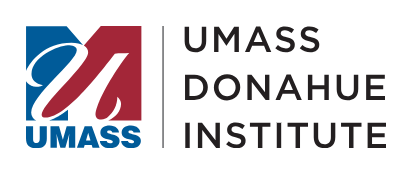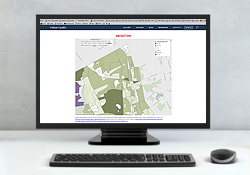
Massachusetts 2020 Census
Secretary William Francis Galvin – Census Liaison

Secretary William Francis Galvin – Census Liaison
LUCA is the only opportunity offered to tribal, state, and local governments to review and comment on the U.S. Census Bureau’s residential address list for their respective jurisdictions prior to the 2020 Census.
Participating in LUCA helps ensure an accurate census count. The census count helps a community plan for future needs. This count helps the federal government distribute more than $600 billion in funds annually for infrastructure, programs, and services.
Active, legal governments can participate in LUCA. These include: federally-recognized tribes with a reservation or off-reservation trust lands, states, counties, cities (incorporated places), and townships (minor civil divisions)
August 2019: Feedback materials offered to participants with the results of the canvassing.
April 1, 2020: Census Day.
For more information about LUCA, e-mail GEO.2020.LUCA@census.gov, or visit www.census.gov/geo/partnerships/luca.html
The Secretary's office offered regional workshops for Massachusetts municipalities. At these workshops, the U.S. Census Bureau instructed municipalities how to prepare, register, and participate in a census.
Also, the UMass Donahue Institute worked with the Secretary's office to best help communities prepare for LUCA. Workshop material can be found below:
The UMass Donahue Institute offers interactive resources for those interested in learning more about housing units in their communities:


As we approach 2020, the U.S. Census Bureau provides increased opportunities for states and local governments to have an impact on the decennial count in their regions. PEP is actively participating in a number of these opportunities in coordination with the Secretary's office . To help cities and towns prepare for Census 2020 and, specifically, for the Local Update of Census Addresses 2020 effort, PEP is preparing and posting online resources. See below for current Census preparation resources, and check back on this page for additional resources as we draw closer to Census 2020.
Visit the Dashboard

Secretary Galvin speaks with Jeff Behler, Director, New York Regional Office, U.S. Census Bureau
Secretary of the Commonwealth William F. Galvin addressed city and town officials in March at the Local Update of Census Addresses workshop. The LUCA program will focus on updating census addresses in anticipation of the 2020 Federal Census.

The goal of this session is to get the most accurate resident list possible for the 2020 Census: This is especially critical in counting our immigrant population which promises to be difficult in light of the prospect of further restrictive federal policies on immigration. That and the current political climate could make immigrants more reluctant to participate in the Census.”
– Secretary Galvin
March 23, 2017
The 2020 census count has financial and political implications for Massachusetts for the decade that follows. Population counts determine distribution of funds from federal programs, and form the basis for establishing the number of Mass. Congress members.
LUCA is the only opportunity state and municipal governments have to review and comment on the Census Bureau’s residential address list prior to the 2020 Federal Census.
The Local Update of Census Address operation is the only opportunity offered to tribal, state, and local governments to review and comment on the U.S. Census Bureau’s residential address list for their jurisdiction prior to the 2020 Census. The Census Bureau relies on a complete and accurate address list to reach every living quarters and associated population for inclusion in the Census. Your participation in the LUCA program starting in 2017 will help ensure a complete and accurate 2020 census count for communities.
Presented by:
U.S. Census Bureau
Jeff Behler, Director, New York Regional Office
Mike Horgan, Geographer
Working with municipal police and fire departments, in 2017 the Commonwealth’s State 911 Department will complete deploying a new 9-1-1 emergency call system by 2019. The new system, known as the Next Generation 9-1-1 system, relies on high quality mapping to correctly route 9-1-1 calls to dispatch centers. MassGIS has built and is maintaining this mapping. This statewide mapping includes point locations for addresses, mostly on the structure where the addresses are located, and their associated address or addresses. We refer to this as the master address database, or MAD. This presentation will review how MassGIS built and is maintaining MAD, products from MAD available to municipalities, the ways in which MAD is incomplete, and the importance of state and municipal collaborating to maintain a single complete record of addresses for the Commonwealth.
A review of state resources available to municipalities, and how our agencies are working together to streamline the work effort to assist municipalities with improving address lists, group quarter counts, and providing data submission support and trainings.
Presented by:
Secretary of the Commonwealth's Office
John Barr, Census Program Manager
Michelle K. Tassinari, Director and Legal Counsel, Elections Division
William Palmer, Geographer
Learn how your municipality can access and utilize censusdata for free! See some of the latest tools that have been produced using census data and learn how this data can be used to meet your specific needs.